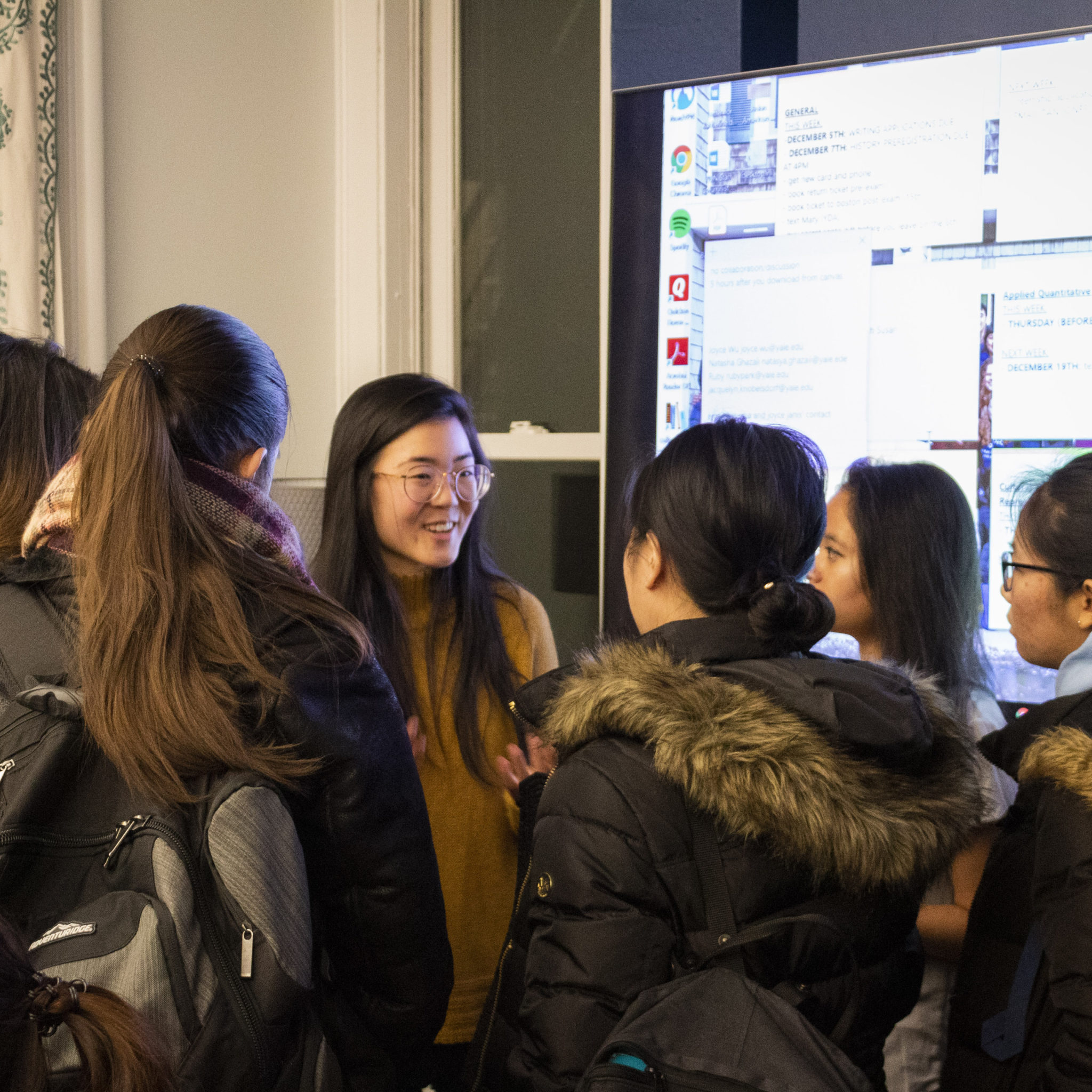
Courtesy of Asian American Cultural Center
The Yale College Council and professors conducting research on Asian-American history and literature held a town hall Tuesday to gauge student interest in an Asian-American Studies program at Yale.
The town hall, which drew more than 60 students, was organized by Katherine Hu ’21, a YCC senator and an opinion editor for the News, along with American studies professor Gary Okihiro and history professor Mary Lui, among others. The event kicked off with a presentation from Hu, who explained that the project originated from a lack of Asian-American studies classes beyond Lui’s Asian-American history class. After the professors fielded questions and students provided feedback, attendees broke off into smaller groups to discuss potential new classes.
“Seeing everyone show up in force today, filling up the seats and spilling out into the hallway, was really heartwarming and showed the power of community here at Yale,” Hu said. “I think the event went well and am excited to see the concrete change that will result from it.”
This year, the College offers four classes on Asian-American literature and history, and the University currently has the highest number of faculty trained in Asian-American studies in history, according to Lui. She noted that because many of those faculty members are tenured, the University will be able to consistently offer Asian-American studies classes to students in the future. The current moment presents a unique opportunity to expand Yale’s offerings in the field, she argued.
English professor Sunny Xiang, who teaches classes focusing on both Asian-American and American literature, echoed Lui’s sentiments but added that it is also important to discuss works written about Asian-Americans in other introductory English courses.
The professors at the town hall emphasized the importance of introducing upper-level research classes beyond Lui’s course, which is the highest-level offering in the field. If students who have already taken Lui’s lecture course have specific topics they would like to investigate, they should have an outlet to do so, Lui explained.
Lui added that overwhelming administrative and mentorship responsibilities prevent faculty members from teaching more Asian-American studies courses. To accommodate student interest in the field, Lui said the University should continue to increase the number of diverse faculty members who have expertise in nontraditional fields such as Asian-American studies and Ethnicity, Race and Migration.
“We’re in a better place now than we’ve ever been,” Lui said. “But it’s not sustainable. There’s only so much work that can be done at this pace.”
Hu, an organizer of the town hall, began advocating for more Asian-American studies classes as “a personal YCC project” in September. According to this semester’s YCC Survey, 42.1 percent of 2,353 respondents said they would take classes within an Asian-American studies program at Yale.
In an interview with the News, YCC President Saloni Rao ’20 said YCC will actively advocate for increasing the number of Asian-American studies classes in their meetings with Yale College Dean Marvin Chun. Acknowledging that any academic changes will take time, Rao emphasized that students must continue asking the University to offer courses that have high student interest. Chun told the News last week that he “very much supports” YCC’s initiative.
Students interviewed by the News at the event echoed the speakers’ remarks, noting that they considered the town hall a success.
“The event actually went really, really great,” said Perry Wang ’22, a first-year liaison with the Chinese American Student Association. “The turnout especially surprised me,” he continued. “Seeing people pouring into the hallway, sitting on the stairs, even, just to hear about [the project] felt very powerful; I knew something special was happening.”
Kathy Min ’21 said she was glad to see that students from all years shared her interest in Asian-American studies. Classes relevant to the lives of Asian-American students would deepen their understanding of their racial identities, Min added.
As of 2017, 14 percent of ladder faculty at the University identify as Asian-American.
Serena Cho | serena.cho@yale.edu
Brandon Liu | brandon.liu@yale.edu







